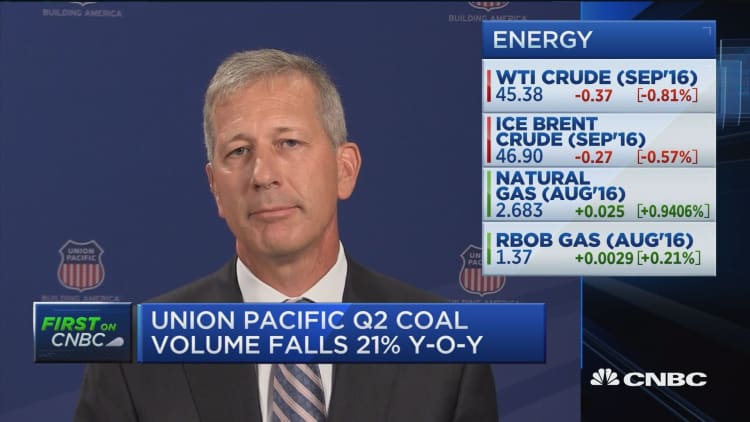
Prices of coal have surged over the past couple months, in what may be a sign that supply-side reforms are starting to work in China, with prices likely to continue getting support from the onset of the La Nina weather phenomenon later this year.
Benchmark thermal coal prices at the Australian port of Newcastle have gained about 30 percent year-to-date to about $67 a ton.
The rally came on the back of production curbs in China, as the government ordered a 500-million-ton of coal production cut in three to five years.
The output cut however, was behind schedule with just 95 million tons cut by end-July — about 38 percent of this year's 250 million ton targeted cut, China's National Development and Reform Commission said Thursday.
But nature may step in to help coal as the likely onset of the La Nina weather phenomenon will bring heavy rain to Australia and Indonesia, disrupting commodity production. Both countries are large coal producers.
The weather event was likely to take place from the fourth quarter of this year to the first quarter of next year, said Fitch Group's BMI Research in a report.
During the last La Nina event, from 2010 to 2011, prices of coking coal rose sharply as economic growth rose in tandem with the adverse weather.
Although coal prices were unlikely to restage a rally as dramatic as 2011's this time around, there would be a slight boost even amid a well-supplied market, said BMI Research in a note.
BMI Research has raised its average price forecast for the year for thermal coal to $53 a ton this year from $51 a ton. It had a prediction of $57 a ton from $52 a ton last year.
"Prices would still be supported temporarily from the fourth quarter by investor behaviour such as panic buying, speculation and stockpiling," the BMI added in a note. Panic buying isn't uncommon when there are supply disruptions as buyers try to stockpile the product.
But even as long-slumping coal prices were set to rise, there's one group that wasn't likely to benefit: coal producers.
Any boost in coal prices wasn't likely to flow through to company's bottom lines as floodwaters could damage infrastructure and lead to a loss in sales revenue should producers miss shipments, BMI said.

